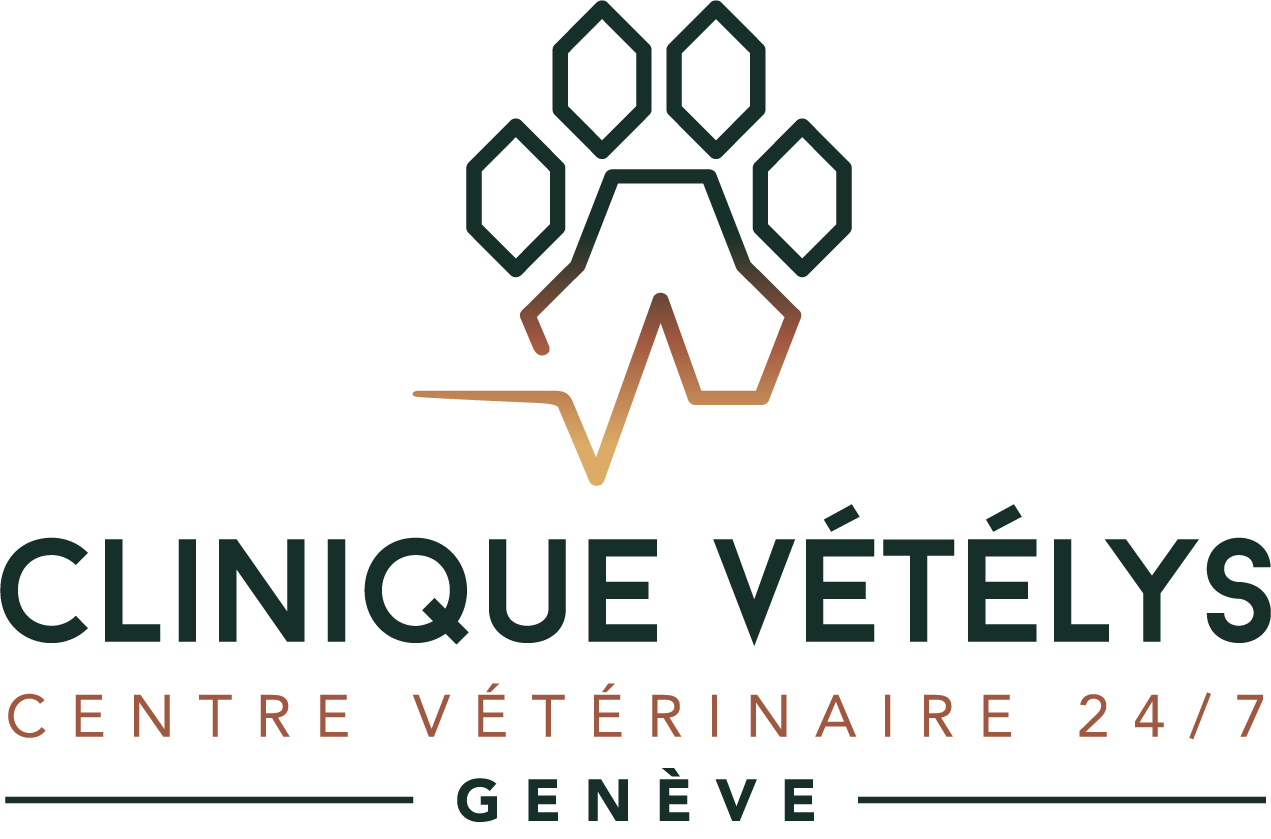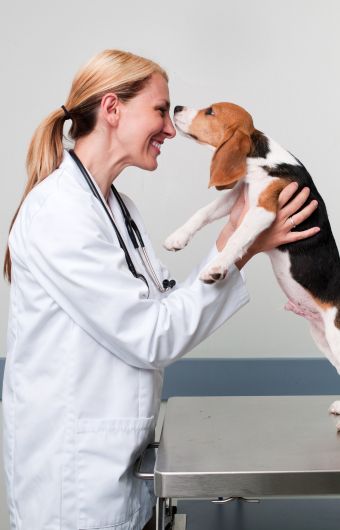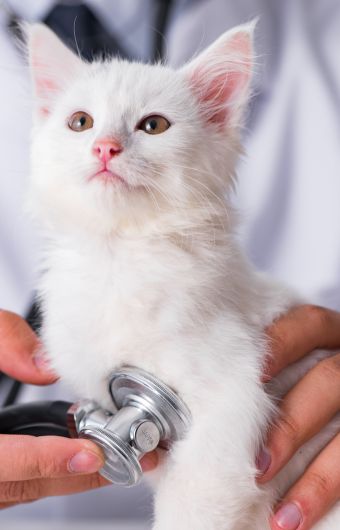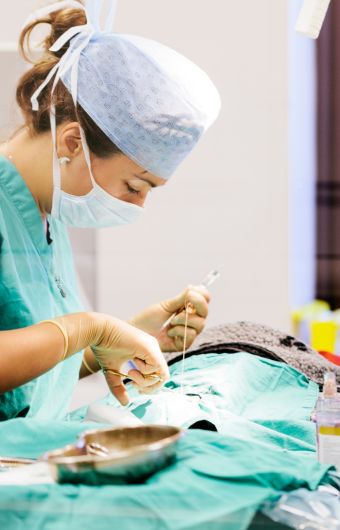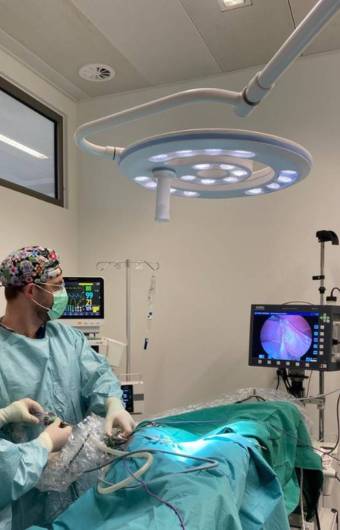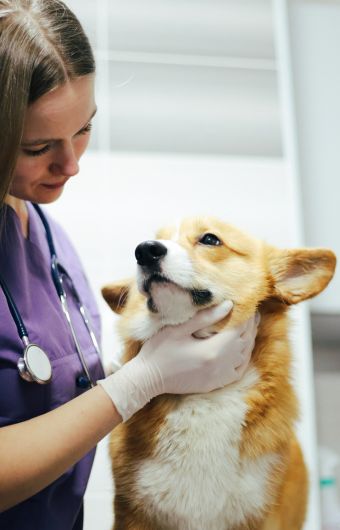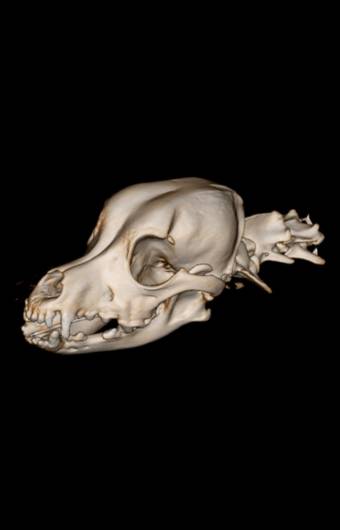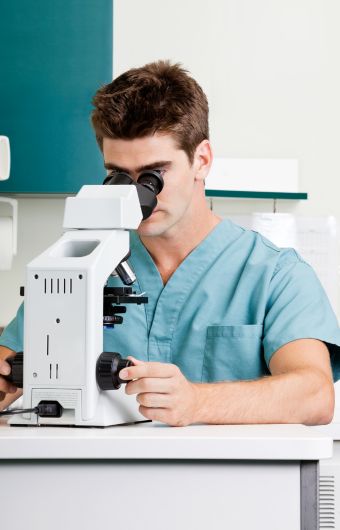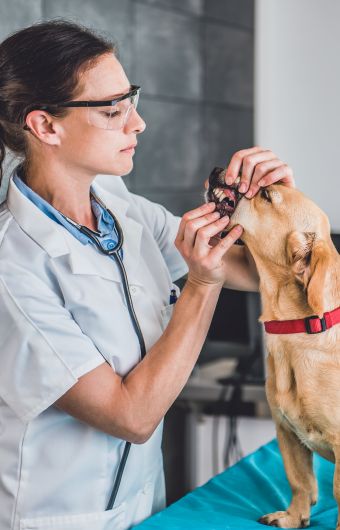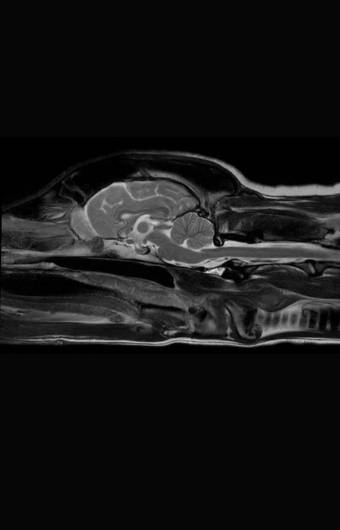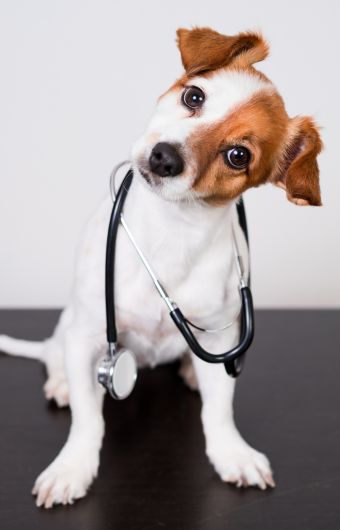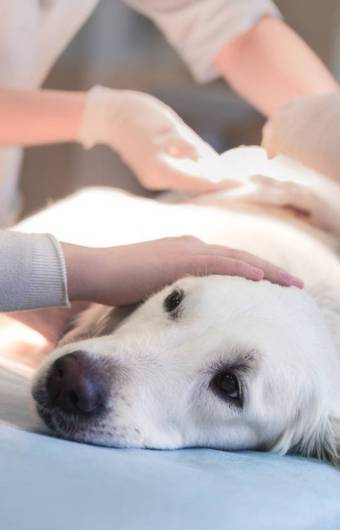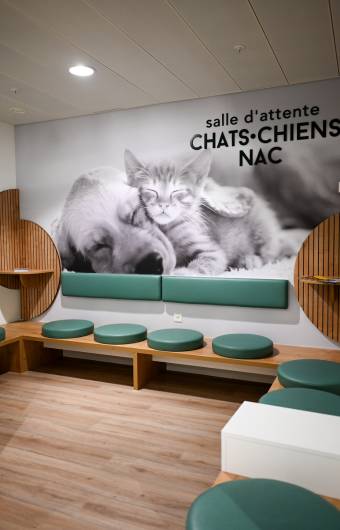Veterinary medical imaging in Geneva: state-of-the-art
to diagnose your animals
Medical imaging plays an essential role in veterinary medicine, enabling accurate, rapid and pain-free diagnosis of a wide variety of pathologies. The Vétélys – Vernier Genève clinic boasts a state-of-the-art technical platform that is unique in the canton and in French-speaking Switzerland, enabling us to offer your animals the best possible care. Our equipment includes :
– Digital radiography
– Two ultrasound scanners
– 32-bar CT scanner
– High-field 1.5 Tesla MRI
– Dental Cone Beam DCT
– C-arm fluoropscope
– Flexible and rigid endoscopes.
These tools enable in-depth assessment of internal structures, helping to guide therapeutic decisions.
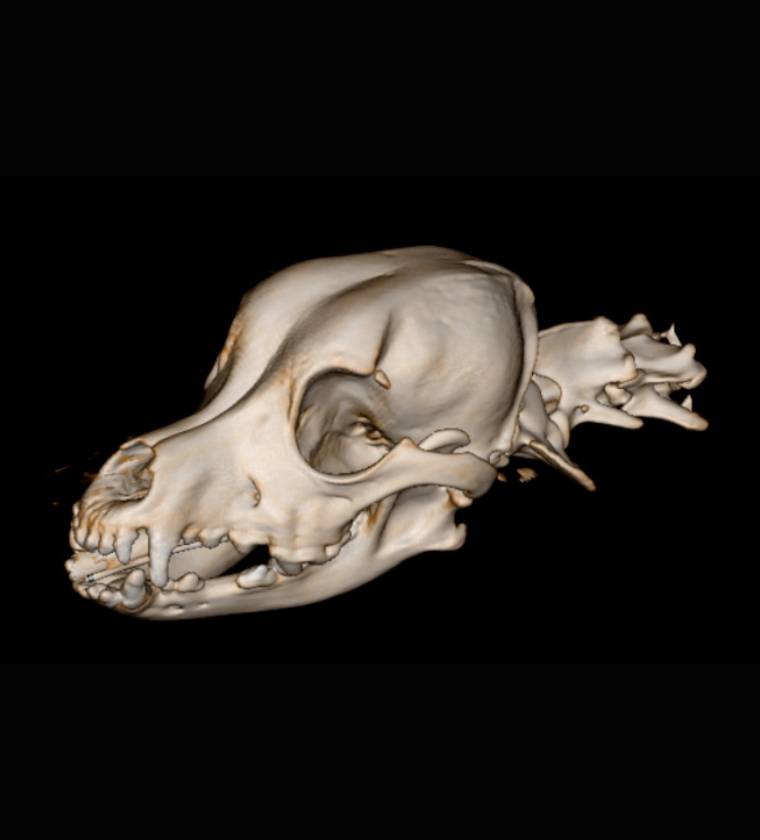
Medical Imaging Vernier Geneva
When to consult? What are the indications for medical imaging?
Is your pet in a worrying condition? Find out the main reasons to contact our veterinary imaging service in Geneva and be seen by one of our vets.
When does my pet need a medical imaging examination?
An imaging examination is often recommended by medical or surgical departments
in the following situations:
- Orthopedic problems: lameness, fractures, dysplasia.
- Heart or lung pathologies: coughing, shortness of breath, heart murmur.
- Digestive disorders: chronic vomiting, obstructions, abdominal pain.
- Neurological disorders: seizures, paralysis, balance disorders.
- Investigation of nodules, masses or tumors: locoregional extension assessment and search for metastases.
- Pre- or post-operative assessment.
- Dental and maxillofacial assessment.
Imaging techniques available
- Digital radiography: used to assess bones, joints and thoracic or abdominal organs. In emergencies, radiography is a quick and painless examination.
- Ultrasound: ideal for examining soft tissues, the heart (echocardiography) and internal organs. In emergencies, it can reveal the presence of
abdominal and thoracic effusion A Fast T Fast. - Scanner (CT): provides detailed 3D images for complex conditions (trauma, tumors, chronic ear infections, etc.). The examination is performed under anesthesia in just a few minutes.
- High-field MRI: the method of choice for neurological diseases (brain or spinal cord problems) and soft tissues. The examination is performed under general anesthesia, and image acquisition time varies.
- Dental Cone Beam DCT: precision imaging examination to assess bone and dental tissue. Can also be used for very small animals such as rabbits, rodents, reptiles and other NACs.
- Digestive and respiratory endoscopy: enables direct visualization of the respiratory tract and digestive system, with the possibility of taking samples or extracting foreign bodies.
- Otoscopy: enables visualization of the external auditory canals and eardrums, and removal of foreign bodies such as spikelets.
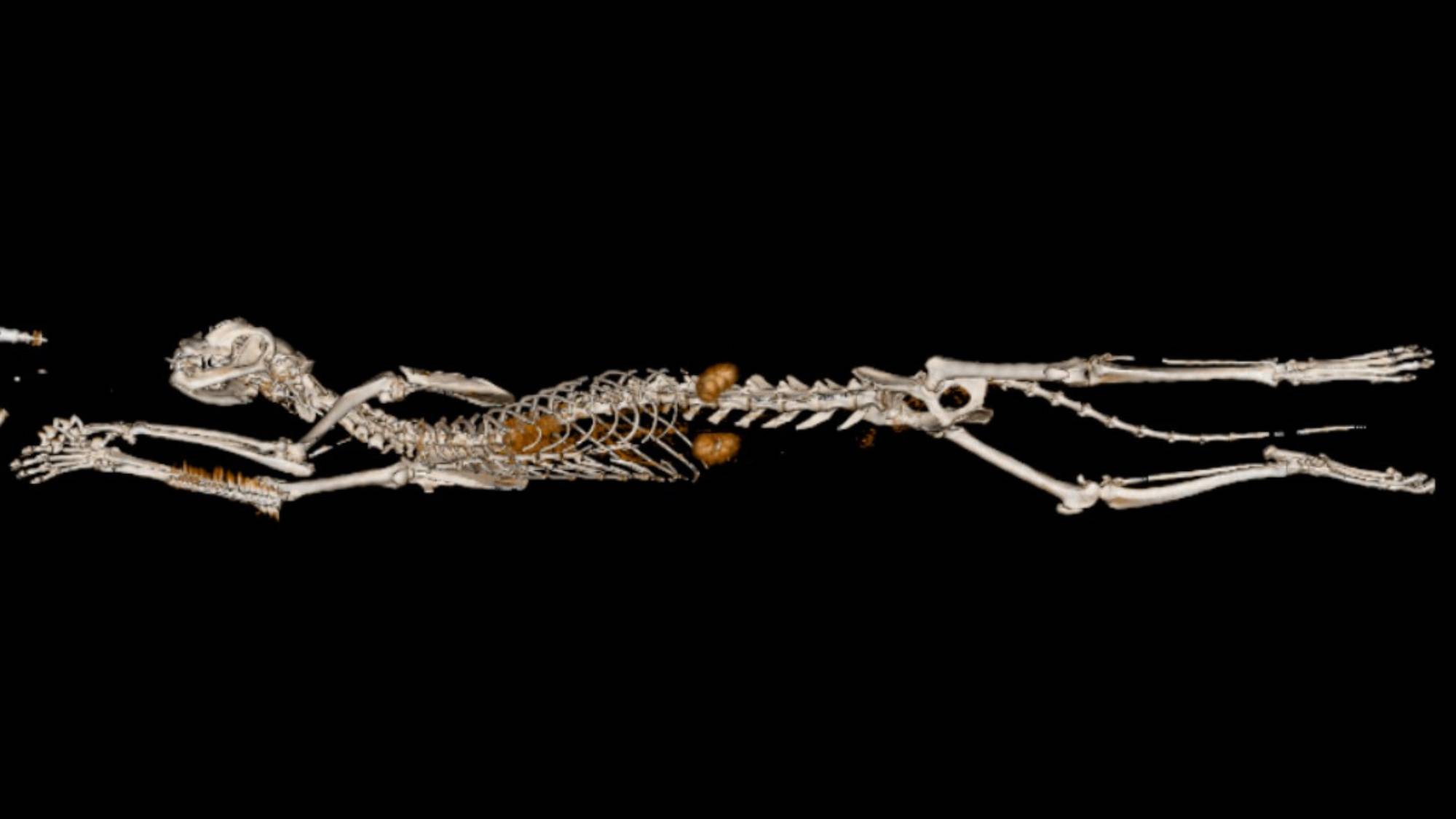
Emergencies 24/7
Medical Imaging Vernier Geneva
Course of a veterinary medical imaging examination in Vernier Geneva at Vétélys
A veterinary medical imaging examination in Geneva Vernier at Vétélys consists of 4 stages: initial consultation, preparation of the animal, carrying out the examination, analysis of results and recommendations.
Initial consulting
- Anamnesis and history: we begin by gathering detailed information about your pet’s state of health and medical history. This moment of exchange with you is essential to your pet’s care.
- Analysis of your pet’s symptoms and medical history.
- Choice of the most appropriate imaging test.
Pet preparation
- If necessary, light sedation
- For certain examinations, such as abdominal ultrasound, CT or MRI, dogs and cats must fast beforehand.
Exam production
- Digital radiography: fast and non-invasive, often performed without any special preparation, with the exception of images with contrast agents.
- Ultrasound: requires prior clipping to allow the ultrasound to pass through.
- CT and MRI: performed under anaesthetic with appropriate monitoring.
Dental Cone Beam DCT: performed under sedation or anesthesia. - Endoscopy: insertion of a miniaturized camera via the mouth, rectum, nose or ears, enabling real-time visual exploration.
Analysis of results and recommendations
- Immediate interpretation by an expert veterinarian or specialist radiologist for cross-sectional imaging.
- Medical or surgical consultation depending on the department ordering the examination or the attending veterinary surgeon.
Answers to your questions
Find out more about Vétélys’ veterinary medical imaging service in Geneva Vernier
What's the difference between a CT scan and an MRI?
- CT scans use X-rays to produce 3D images of bone structures and internal organs.
- MRI uses magnetic fields to visualize soft tissues (brain, spinal cord, muscles, tendons, menisci, etc.) with great precision.
- Acquisition time is faster for CT.
Is medical imaging safe for my pet?
Yes, modern imaging techniques are designed to minimize risk. X-rays are used in limited doses, and anesthesia is closely monitored by trained and experienced professionals.
Does my pet need to be anaesthetized for all examinations?
Not always. Anesthesia is required for CT scans, MRIs and some endoscopies, but X-rays and ultrasounds can often be performed without it.
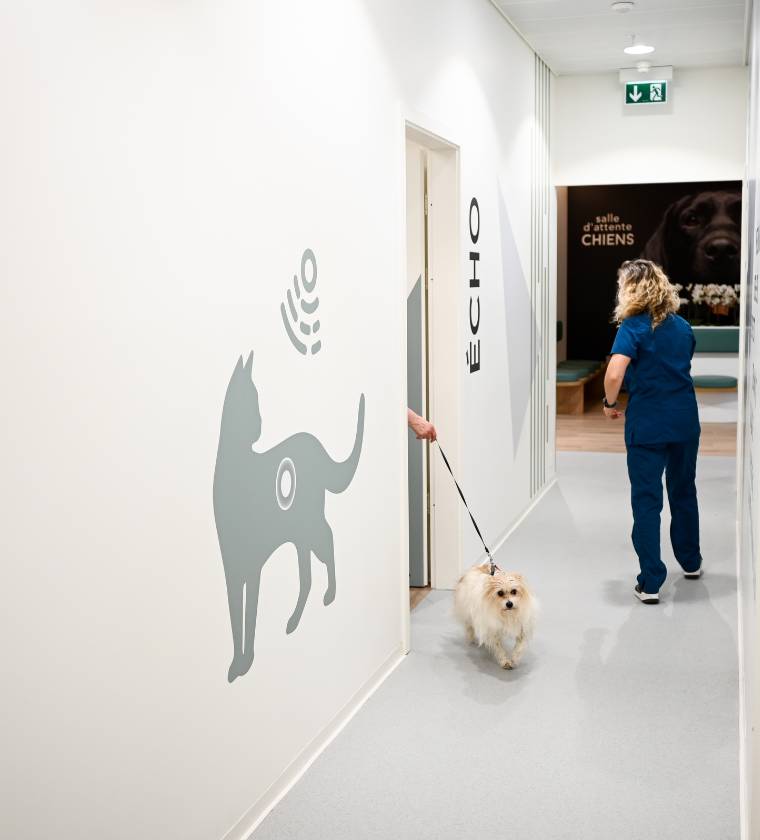
Testimonial
They’ve been to clinic Vétélys
I wouldn’t want to go anywhere else for my cat. All the staff are very gentle and patient with the animals. My cat tends to be aggressive at the vet’s and with them she’s much less aggressive because they take the time not to rush her. The veterinary assistants are all very nice and do a great job too!
Personally, I was warned before an expensive examination (x-ray) and I think that’s a good thing to do with all owners.
Clinic open 24/24 with lots of equipment which is reassuring.
Thank you and keep up the good work 👏🏼
We would like to extend our warmest thanks to the entire Vételys team, and in particular to our veterinarian, Dr. colas, who has been with Kyara every step of the way.
During this dreaded decision, Dr. colas accompanied us with kindness and gentleness to ensure that everything went as smoothly as possible for our daughter, and with a great deal of compassion for us.
We were touched by the personalized card we received shortly after her death, and thank you for all the love and kindness you showed her over the years.
We feel that they really care about our animals’ health, and what’s more, we always get all the explanations we need to understand their minor or major pathologies. Thank you to the whole team for their friendliness and the seriousness of their work.
Patience, good advice, our Snoopy feels at home here.
Very attentive, patient and gentle with animals.
I called them urgently at 8:30 for my Tonerre and at 9:15 he was taken care of.
The team is very attentive and the vet is only interested in the well-being of your companion, not in billing for unnecessary procedures. I recommend this establishment, which is also very clean and easy to get to.
Expert insights
Tips for preparing your pet for an imaging examination:
- Follow the instructions: fasting for abdominal ultrasound, CT scan or MRI.
- Transport your pet in a calm, secure environment to minimize stress.
- Notify the veterinary team of any medical problems (allergies, current treatment).
Dr. Méd. Vét. Franck Durieux, a specialist in veterinary medical imaging, explains
“Advanced imaging is an indispensable tool for effectively detecting and treating complex pathologies. Proper preparation guarantees optimal results.”
Consultations
-
Digital X-ray: CHF 100 to 300.
-
Abdominal or cardiac ultrasound: CHF 200 to 400.
-
CT scan : CHF 800 to 1,500.
-
High-field MRI: CHF 1,500 to 2,500.
-
Dental Cone beam DCT: CHF 160 to 260.
-
Endoscopy (digestive or respiratory) : CHF 800 to 1,200.
A detailed estimate is drawn up according to your pet’s specific needs.
Clinic specialties
Discover our other specialties
